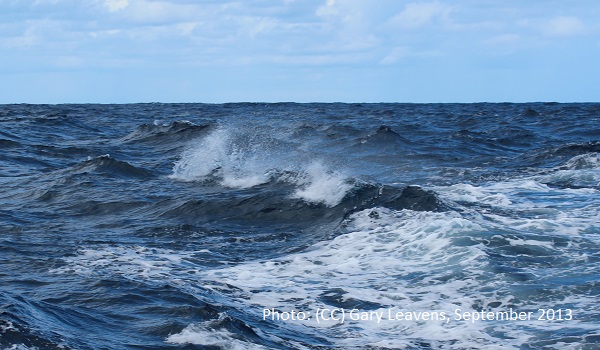After more than 4,100 people arrived to the Canaries in January, rescue activity has continued with new trends in departures. The situation for unaccompanied minors on the Islands remains at crisis point. Deportation flights from the Spanish archipelago to Morocco at set to resume, though the Spanish government is unwilling to reveal information about costs and outcomes of these flights. In 2021, almost 13,000 Venezuelans were granted humanitarian protection in Spain.
The Canary route has undergone a “reactivation” since November 2021, with new arrivals occurring almost every day. On 4 February 187 people were disembarked between Gran Canaria and Lanzarote. Over the following days, Salvamento Marítimo (SM) conducted rescues that brought groups of 43, 141, 38, and 196 people to shore in the Canaries. On 7 February, 53 people were rescued by the Moroccan Navy from a boat in distress within the Spanish SAR zone. Despite having been alerted to the boat the night before, by the time the authorities arrived four people had already lost their lives as the boat was deflating. A passing merchant ship also failed to assist the boat in distress. Unprecedented trends have been observed as regards the point of departure of the boats. Until recently, the hot spot was concentrated in the Dakhla area, which meant that most of the arrivals reached the island of Gran Canaria. So far this year the focus has shifted northwards, within Moroccan territory, and departures have been detected from Safi, less than 200 kilometres from major cities such as Casablanca. As a result, a large number of arrivals are now also being registered in Lanzarote and Fuerteventura.
Only 208 unaccompanied minors who arrived by boat in the Canaries in 2021 were relocated to reception centres in eleven autonomous communities. According to Iratxe Serrano, director of child protection on the islands, the reception facilities for minors are hosting 2,819 children, far beyond their capacity. This situation is exacerbated by a lack of sufficient places in shelters, a lack of cooperation by some municipalities and a lack of resources to open more centres or supervised flats in the short term. As a result, Serrano has warned that the next unaccompanied minors disembarking on the Canary Islands will have to remain in the police station or in the temporary centres for foreigners. The minister for inclusion and migration, José Luis Escrivá, has acknowledged the need to adopt a distribution protocol to relocate unaccompanied minors between the autonomous communities, following the adults’ model.
The latest data reveal that 1,304 young people remain in limbo on the islands awaiting tests to determine their age. In practice, issuing age assessment decrees takes between a year and a year and a half vis-à-vis the 90-day period established by law. Noemí Santana, regional minister for social rights, equality and youth said that authorities had avoided keeping children in police custody for more than 72 hours by resolving 60 age assessment cases and releasing those places. Nevertheless, the accommodation shortage on the islands means hundreds of adults are in spaces meant for children. The ‘age assessment bottleneck’ and the lack of proper reception measures hinders minors’ integration and often results in minors spending months in poor conditions.
Spain expects to resume “immediately” the deportations of Moroccan migrants in an irregular situation. This comes after the reactivation of international flights to Morocco, suspended since April 2021 due to the pandemic. The agreement with Morocco consisted on the return of 20 people on each of the four Royal Air Maroc flights departing from Gran Canaria to El Aaiún every week. On this basis, these flights, agreed with Morocco at the beginning of December 2020, would have transported a maximum of 1,400 people by April 2021. Yet, prime minister Pedro Sanchez’s government refuses to provide information on the costs of the flights, the nationality of the people returned, the number of migrants deported and the number of police officers needed to supervise each flight, arguing that it could “damage bilateral relations”, according to El País. It is also unclear whether minors have also been deported via such flights. The Spanish police often refers to the deterrent effect of these flights, but the reality is that they are not publicised at all in Morocco, nor are there any communication campaigns warning of the risks of deportation.
In addition to the right to asylum and subsidiary protection, the Aliens’ Law provides for the possibility of authorising temporary residence in exceptional circumstances, such as: rootedness, humanitarian reasons, collaboration with the authorities, national security or personal interest. Article 126 of Aliens’ Regulation sets out the cases in which this authorisation may be granted for humanitarian reasons. In 2021, the Asylum and Refuge Office (OAR) granted 12,983 requests for humanitarian reasons: 98.7 per cent of these concerned Venezuelan citizens. Faced with the political and humanitarian crisis in Venezuela, Spain began to grant the status of protection for humanitarian reasons to Venezuelans in February 2019. By November 2019, some 90,396 Venezuelans had been welcomed in the country for humanitarian reasons, assured Paloma Favieres, policy and campaigns director of ECRE Member CEAR. Yet Spain remains one of the countries with the lowest asylum rates in the EU. In 2021, only 10 per cent of 71,830 applications for international protection were granted.
For further information:
- ECRE, Atlantic Route and Spain: Political Infighting Leaves Lanzarote Arrivals in Overcrowded Facility, Boat Drivers Sentenced to Jail, Record Rescues in the Last Weeks of January, February 2022
- ECRE, Atlantic Route: More Deaths on Dangerous Journeys, Smugglers Evade Moroccan Authorities, Women Increasingly Risk Their Lives at Sea, January 2022
Photo: (CC) Gary Leavens, September 2013
This article appeared in the ECRE Weekly Bulletin. You can subscribe to the Weekly Bulletin here.

